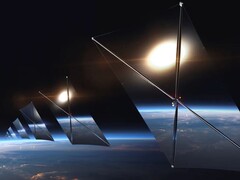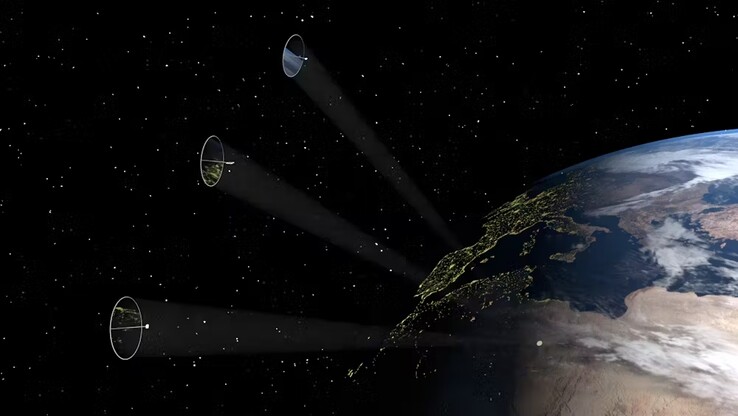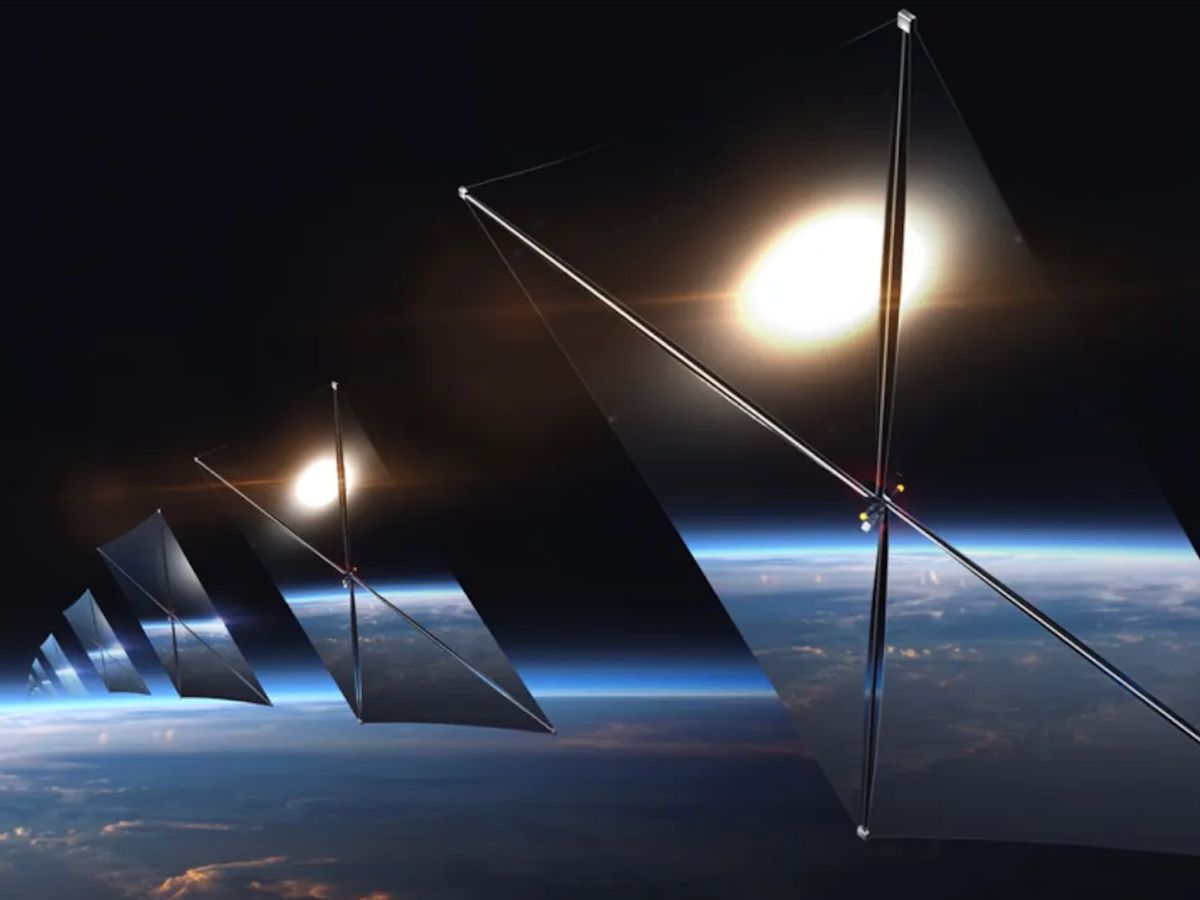 A representation of the satellite constellation that will be sent into space by Reflect Orbital. (Image source: Reflect Orbital)
A representation of the satellite constellation that will be sent into space by Reflect Orbital. (Image source: Reflect Orbital)
Solar energy is becoming increasingly present in our daily lives, and startup Reflect Orbital understands this well. The company plans to deploy mirrors in space to redirect sunlight to Earth without interruption.
Space is a vast and largely unexplored place due to numerous physical factors. However, a startup wants to revolutionize its field by sending a giant mirror into our solar system to redirect solar energy back to Earth.
The California-based company Reflect Orbital is behind this amazing project. And with good reason, because although solar energy is now captured in many places around the world in a variety of ways using solar panels, these panels cannot absorb sunlight at night.
For this project, the start-up plans to send a satellite with a large mirror installed on it into space to capture this energy continuously, without interruption. The mirror is made of mylar, which is made from polyester and has a very fine but ultra-resistant surface.
But that’s not all, because while sending a satellite into space is now commonplace, another step must be taken, and it’s the most important one. The mirror will have to reflect sunlight toward various specific points on Earth in order to deliver a large amount of energy. Needless to say, this requires remarkable technological prowess, as demonstrated by this AI-controlled satellite used in a NASA mission.
 Image showing satellites redirecting sunlight to a specific point on Earth. (Image source: Andrea Viale, University of Glasgow, NASA)
Image showing satellites redirecting sunlight to a specific point on Earth. (Image source: Andrea Viale, University of Glasgow, NASA)
Thus, for this stage, two services are already in place, namely energy and lighting. In other words, the first involves sending light emitted by the sun to solar power stations during the night, so that solar panels can produce energy when the sun is not shining. The second involves directing this light to areas of the Earth that need specific lighting, reminiscent of the village of Viganella in Italy, which is lit by a mirror located on a hill.
It should be noted that the start-up has big plans for the long term. It wants to send 57 mirrors to an altitude of 600 km to create an artificial constellation of satellite reflectors in low orbit. If successful, this could prove very useful in many areas of activity.
 Alexis Stegmann – Tech Writer – 117 articles published on Notebookcheck since 2025
Alexis Stegmann – Tech Writer – 117 articles published on Notebookcheck since 2025
I’ve been working in the field of web writing for several years, and I’m passionate about keeping readers up to date with the latest news on astronomy, technology, the world of video games and other exciting subjects. In particular, I’ve had the opportunity to work on a number of websites, which has enabled me to cover a wide range of subjects. In my personal life, I’m passionate about a wide range of subjects, including astronomy, video games, history and science. I’m also drawn to psychology, which is a subject that deserves greater documentation and recognition.

